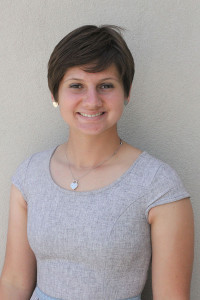“How are you?”
“Good, and you?”
“Good.”
I have this conversation several times each day, being asked how I am, giving a vague, positive response, then receiving a similar answer back. Rarely does this formula change, no matter whom I am talking to. Even more rare is for an honest response to be given.
It’s hard to believe that each person we’ve talked to is actually having just a normal, good day. Someone surely must have overslept, stayed up late studying or simply be having an off day.
On the other hand, someone surely must be better than good. At least someone must have had all green lights on the way to school or just received a high grade on a project she been working on for several weeks.
By responding with a bland “good,” we don’t let others into our lives. Not only do we deny others from celebrating the successes that we have, we deny those from knowing what is actually going on in our lives. Someone might be going through the same difficulty that you are, but by not being open with someone, we lose the chance to let him or her know that they are not suffering alone.
If we are unable to be honest about how we are doing when someone asks, other, more important things become silenced.
This sweeping under the rug of what is actually going on leads to silence about more serious topics, such as mental health, substance use and sexuality.
The atmosphere on campus surrounding these taboo topics is one of don’t ask, don’t tell. While we do learn about some of these things in LMS and have FDC speak to us once a year, these efforts do not always provide a safe space to explore these traditionally taboo topics.
As a school, we do a great job of raising awareness about issues that do not affect us directly on campus. Peace Jam brings awareness to issues such as the need to clean water around the world and the struggles facing foster children. Bread and Backpacks helps to feed children in the surrounding areas. Our annual food drive helps to fill Second Harvest’s shelves. These are all awesome things that we are doing and should not stop.
We don’t, however, do a great job of talking about the problems that we face as a school. Except for parking, dress code, and the occasional flood of the quad, one would think our school does not have any problems.
This is impossible. We are all humans, and with being a human, especially a teenage human, we have problems, and we need safe spaces to explore these issues.
These conversations can be started, but we must be willing as a school to be honest.
We can start by talking about how to manage stress, not simply how to manage time. Through advisory, we can start talking about what to do when the stress of school gets to be too much. When we start talking about our stresses and anxieties, we will start to realize that we are not the only ones who are stressed.
We can start by holding discussions, instead of lectures. The only time that sex has been brought up since LMS has been through a lecture given by Pam Stenzel, an abstinence-only sex educator. A guest speaker should not be the only person to bring topics such as these up.
We run into a similar issue when FDC is brought to campus. While it is valuable to have these experts come speak to students, these should supplement discussions that we are having, not replace them.
Some topics, such as sexuality, have been swept so far under the rug that a guest speaker was not even given. We can start to change this silence by changing our mentality that some things should not be talked about. When we talk about these taboo topics as a school, they become less scary, since we often fear something simply because we don’t know about it.
We can start by knowing as students that there are people, both our peers and our teachers, on campus that are willing to have informal and formal conversations about these more sensitive topics.
With talking about these larger topics comes the responsibility of respect.
“Establishing a level of trust and a level of respect amongst our student body and even amongst our faculty, making sure that everybody recognizes this is a judgment-free zone [is crucial] in order to have those kind of discussions,” guidance counselor Rylan Smith said.
We must “find a few people who are willing to have those discussions and kind of push the bar a little bit and that opens that door,” Smith said.
While it would be ideal if we could guarantee that everyone would approach these topics with respect and an open mind, it cannot be guaranteed. Being honest is harder than acting like everything is okay, but in the end, talking about issues we face as a campus, and as individuals, will ultimately improve the school for all involved.









